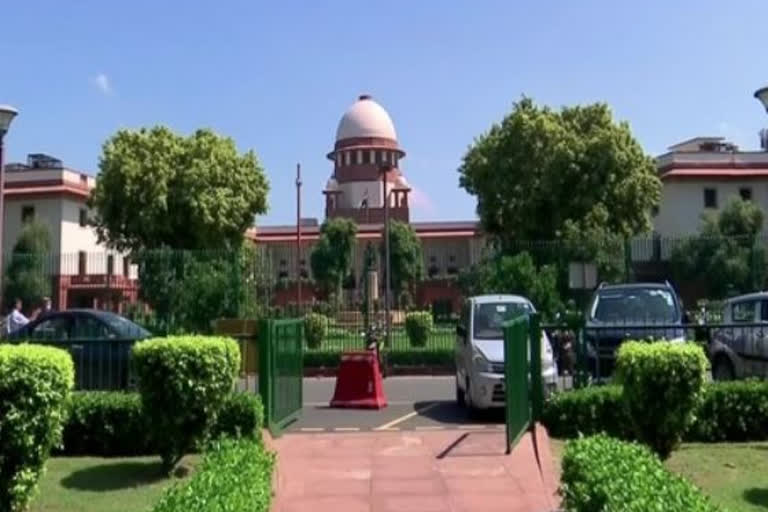New Delhi: The Supreme Court in a 4:1 majority verdict on Monday upheld the government's 2016 decision to demonetise the Rs 1,000 and Rs 500 denomination notes, saying the decision-making process was not flawed. The five-judge Constitution bench, headed by Justice S A Nazeer, assembled for the verdict on a batch of petitions challenging the demonetisation decision on Monday.
It said the decision-making process could not have been flawed as there was consultation between the Reserve Bank of India (RBI) and the Union government on demonetisation. Justice BR Gavai dictated the verdict upholding the demonitisation and Justice BV Nagaratha delivered her verdict on dissent.
Also Read It's slap on the face of 'certain people': Mukhtar Abbas Naqvi on SC's demonetization verdict
Nagarathna, in her minority verdict, held that demonetisation of Rs 500 and Rs 1,000 currency notes was vitiated, unlawful. The top court's judgment came on a batch of 58 petitions challenging the demonetisation exercise announced by the Centre on November 8, 2016.
Gavai said the central government had acted on the recommendations of the central board and there was no flaw in the decision and impugned notification. It said that there has to be great deal of restraint in matter regarding economic policy and court can not supplement the view of experts or substitute legislative action.
Gavai said that it appears there was consultation with the RBI for 6 months and the period of 52 days was given which can not be considered unreasonable. Referring to arguments regarding hardships faced by the people due to the decision, Gavai said, "it is not relevant if objective is achieved or not, the purpose should be proper."
"I am of the view that the impugned notification is unlawful, the action of demonetisation....ordinace of 2016 and enactment of 2017 are also unlawful," ruled Nagarathna. "Action of demonetisation was an exercise of power contrary to law," Nagarathna said, while presenting her dissent verdict.
She opined that proper procedure that should have been followed while taking the decision was not followed and instead a gazette notification was issued. She said perusing the documents submitted by the RBI and the government revealed there was no independent application of mind by the bank.
She observed that usage of certain phrases like "desired by the government" springs such question. "All the series of bank notes were demonetised in 24 hours," she said, adding that, "at this stage status quo can not be reversed but the government should proceed only with parliamentary process and not issuance of gazette."
"It is without doubt that it was with well intention, no point in saying that it was motivated... this measure has been regarded as unlawful only because of not following procedure and not because of aim," Nagarathna pointed out. The matter will now be placed before the Chief Justice of India DY Chandrachud, who will assign it before an appropriate bench.


